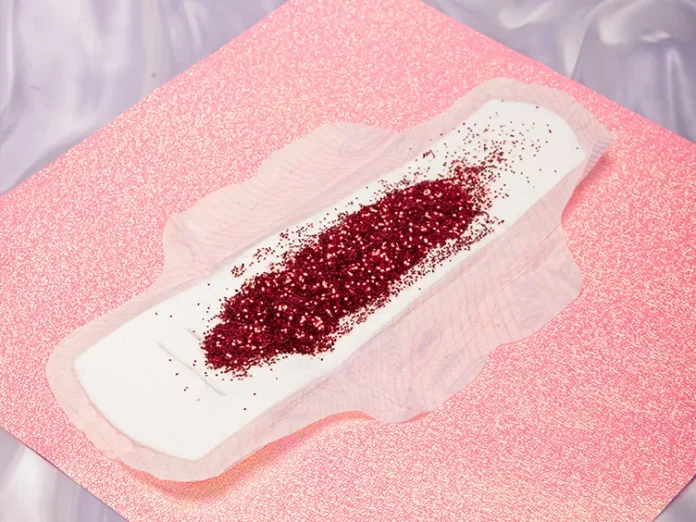Does stress lead to Spotting? It is possible for stress to cause Spotting. Unexpected bleeding and stress have been proven to disrupt menstrual cycles in a number of ways. Unexpected bleeding or stress is the last thing you need to be worried about if you’re already experiencing anxiety and stress. Anxiety can have a significant impact on your period. It can make it more difficult, prolong your period, cause unanticipated bleeding, or even stop your cycle altogether. An indicator that something is wrong is a change in your menstrual cycles. You should be aware of any changes.
If you’re a woman in reproductive age, your period will begin every month. Sometimes you might notice some vaginal bleeding while you’re not on your period. This spot is rarely something to be concerned about. It can be caused either by pregnancy or contraceptive bleeding.
It is always a good idea that your gynecologist examine you for unusual vaginal bleeding, particularly if the cause is not clear.
The term “spotting”, which is often used to describe light bleeding between periods, is common. They can occur a week or two before menstruation, and after sex.
But how do you distinguish between brownish discharges that occur before menstruation from menstrual bleeding? What are the most common causes for this discharge? Let’s look at the causes.
Disclaimer regarding Health Information The information contained in this article is for your convenience only. It should not serve as a basis for treatment or diagnosis. Consult a doctor for any questions.
Is stress a factor in spotting? We should be aware of some key facts about spotting.
What is spotting exactly?
Bloody discharge is when there is a small amount blood released from the vaginal area between periods. This is a common problem for most women and should not be considered a concern. However, it’s important to be aware of the causes and what to do in these cases.
Spotting is usually not considered dangerous and does require no medical attention. In some cases, however, it may be necessary to have an examination or receive treatment.
What are the benefits of spotting?
Vaginal bleeding that occurs during periods is called differently. Metrorrhagia, intermenstrual bleeding, spotting. These can occur for many reasons.
Most of the time, bloody discharge doesn’t affect your life. You can forget about them. If the bleeding is severe, it can lead to serious complications and death. It all depends upon the particular case.
Such discharge is acceptable for girls in their teen years who have not established a period or women who are premenopausal. Don’t be surprised if your yesterday was filled with violent sex. What causes bleeding during periods? But even normal stress can cause bleeding.
You may be asking why is so obvious?
Other reasons blood can appear when it is not expected include:
- Ovulation. For some women, maturation of an egg occurs with the release a few milliliters (or more) of blood. This is normal.
- Neoplasms of cervix or the uterus . Neoplasms are tumors that can be either benign or malignant.
- Miscarriage. Lifehacker stated in a previous article that many pregnancies are terminated early because of defects in the ovum.
- Medicines. Many hormonal contraceptives, for example, have this side effect. Spotting can occur if you forget to take a pill.
- Hormonal changes. It could happen before or after menopause, or because of changes in the hormonal background.
- There are some sexually transmitted diseases. For example, chlamydia
- Polycystic-ovary disease. It is a chronic condition where the ovaries cease working properly.
- Ovarian dysfunction.
Symptoms
To avoid staining your clothing, a sanitary napkin (or tampon) will be required during your period. Blood anointing tends to be less common than menstruation.
Other symptoms can help you determine if your period is beginning or if it is spotting. You might experience the following symptoms just before or during your period:
1. bloating2. chest soreness3. cramps4. fatigue5. Mood swings
6. nausea
If you experience spotting from another medical condition, it is possible that there are other symptoms as well.
1. More frequently or for longer periods of time than usual2. Redness and itching in the vagina Periods missed or not regular nausea5. Pain during sex6 or urination6. Pelvic or abdominal pain7. unusual vaginal discharge or odor
8. Weight Gain
Stress and spotting (Can stress lead to Spotting?)
Stress can cause Spotting
It can be distressing to find blood under your clothes when you least expect it. However, breakthrough bleeding and spotting are quite common. You can spot anything, from serious illness to minor changes. Unexpected bleeding and stress have been proven to disrupt the menstrual cycles in a number of ways.
Although it is unclear how anxiety and stress can affect your cycles, there are some things you can do. You may experience irregular bleeding or spotting under high stress conditions. Good news: You can bring your cycle back to normal by reducing stress and anxiety.
Anxiety can also affect your cycle
Anxiety can cause more damage than spotting, especially when it is combined with other stresses. Your healthcare professional can help you if your stress is causing changes in your menstrual cycles.
Missed periods
It’s possible that stress could be the reason your period is delayed. Stress and anxiety can cause delayed periods or even complete omission. Stress can make your cycle more irregular or longer, often because of one or two missed periods.
No periods
Although it is distressing to miss your periods, you may also experience amenorrhea or a condition where your period stops. This can be an additional side effect of anxiety and stress. To ensure that nothing is more serious, your doctor should be consulted if you’re missing your period or have missed any of your previous periods.
More severe bleeding
Even if you are having your period regularly, side effects such as anxiety and stress can still occur during your period. You might feel more bleeding, pain, fatigue, or soreness. Your period could also be longer.
Other signs of anxiety
In addition to disrupting the menstrual cycle and causing anxiety, there are many other side effects. Although everyone experiences anxiety differently there are some common signs and symptoms you should be aware of. This is a sign that your stress and anxiety levels are higher than normal.
Excessive worry
Stress and anxiety can manifest as excessive anxiety. Your mind may be racing and you feel that you can’t control your thoughts. Sometimes, intrusive thoughts or worries may be a problem. You may be experiencing more severe stress if you cannot stop thinking about the things you don’t like. Seek professional help if you have any mental health problems.
Fatigue and lethargy
Anxiety and stress can lead to difficulty in getting out of bed every morning and difficulty surviving the day. No matter if you are experiencing chronic stress or temporary fatigue, lethargy and fatigue are common symptoms. Other symptoms like anger, guilt, hopelessness and fatigue can also be affected by lethargy and fatigue.
Feeling hopeless
Feelings like you are losing hope can be a sign of anxiety and stress. It can feel futile to try anymore or that you will never succeed. Sometimes, feelings of hopelessness are often rooted in real stressors like financial insecurity, political turmoil, personal and professional frustrations, and even political unrest. You might feel powerless and helpless to effect real change in the world.
Anger
Stress and anxiety can lead to anger and irritation, even though you don’t understand why. Stress can cause you become more impatient, to be overwhelmed by small details, and to attack those around you. Stress can also make you angry at other people or things. Even if your anger is not a normal reaction to stress, it can lead you to feel out of control and cause you to react in an inappropriate way.
Muscle tension
Tension can result from stress and anxiety, which can cause soreness and pain. Headaches can be caused by a tendency to clench and grind your teeth or clench your jaw during stressful situations. Your body can become exhausted from stress and anxiety, even if it hasn’t done anything extraordinary.
Changes to appetite
It could indicate anxiety or stress if you eat more than normal or struggle to eat throughout the day. Stress can cause a sudden drop in appetite, make it difficult to eat, and increase your food cravings. Stress and anxiety can cause a sudden decrease in appetite. You may also want to comfort yourself by eating and overeating if your appetite is changing.
Sleep changes
Anxiety and stress can also impact sleep. Some people struggle to fall asleep, or even at all, on time. Some people may have anxiety and insomnia. Some people have trouble getting up in the morning or staying asleep for more than the recommended hours. Bad sleep can also result from stress.
Guilt
You may experience guilt if you are suffering from anxiety or stress. Obsessive thoughts and feelings of guilt can negatively impact your quality of living.
Other causes
Spotting can be caused by stress, anxiety, and a number of other factors. It is a good idea, if you have concerns about spotting to seek out the assistance of a healthcare professional in order to ensure nothing is more serious.
Pregnancy
Pregnancy is another sign of bleeding. The appearance and feeling of spotting may occur after the egg has been implanted. To confirm that you are pregnant, get a pregnancy check and seek immediate medical attention.
Excessive exercise
Exercising excessively can disrupt your cycle, cause you to spotting, and even stop your menstrual cycle altogether. Your menstrual cycle may change if you put too much stress on your body from exercising. While exercise is beneficial in many ways, you shouldn’t stress your body so much that it causes serious side effects.
Weight Changes
It is possible for your period to be affected by weight gain or loss. A significant weight gain or loss can cause irregular periods, such as spotting or delayed periods or even missing periods. You can gain or lose weight slowly and with healthy methods.
Other health issues
Your cycle may be affected by other health issues such as thyroid problems, PCOS and changes in birth control. Changes in your cycles can be an indication that something is wrong. If you are concerned, it’s important for you to listen to your body.
Where to Get Help
It could indicate unhealthy stress and anxiety if you experience spotting or other symptoms. Stress and anxiety can have numerous negative side effects, and can greatly impact your quality life. It is possible to manage anxiety and stress in a variety ways.
Do you feel stressed and anxious? Occupational therapists can help with anxiety management, coping strategies and improving your mental health. Better Help offers many online therapy services. You can enjoy the benefits of therapy right from your own home.
Differentialities between Period and Spotting
Is there something similar to spotting at the time your period should begin? It could be spotting but it could indicate the beginning of your menstrual cycles.
Sometimes it is hard to distinguish between menstruation and spotting. But, there are differences between menstrual blood and spotting.
The color of menstrual blood can range from red to brown. The blood may turn nearly black after your period. A doctor should be consulted if there is bleeding profusely and blood that is orange-tinted (bright, red, or orange).
Bloody discharge can be described as a brief, short-term (1-2 days) bleeding. It’s not as intense as menstruation. It should not be associated with pain or clotting. The blood’s color can range from light brown to bright pink.
Although bloody discharge can occur at any moment, menstruation occurs cyclically.
In the middle of the cycle, bloody discharge is most common. It’s usually associated to ovulation. However, sometimes spotting may indicate an internal change. Another variant of the common sighting is one that occurs soon after menstruation.
Is Spotting(bloody discharge) normal?
Spots are common but can be stressful for women. It can be frustrating and surprising to see stains in your underwear, especially if it is a regular pattern.
But don’t panic. Don’t worry if you spot something. In most cases, it isn’t a serious condition that needs to be examined and treated. You should seek professional advice if the symptoms are severe or bothersome.
Do you have to worry about seeing before period?
Do you want to spot your period a week ahead? Don’t worry if your period is about to begin in a week and you already notice spotting. It is unlikely they are discussing a serious issue. You are better to keep calm and objectively assess the situation.
You can start by looking at our list of most common causes for such discharge. This will provide you with an indication of the possible diagnoses, as well as whether or not you need medical attention.
But there are signs to look out for:
- Lower abdomen pain;
- heat;
- aftermenopause, vaginal bleeding and spotting;
- Spots that get worse or more frequent over time.
Get professional advice if you are worried about any of the preceding.
Spotting in between periods
As you know, spotting is a condition that causes little bleeding from the genital system between periods. They can look different in different women and in different women at different times. There may be a difference in their color: younger blood is reddish, and older blood may be brown or black.
Let’s see what causes most often occur between periods.
Hormonal contraceptive
Use hormonal contraceptives such as pills, patches, injections and other forms of contraceptive medication. You may notice spotting within the first 3 months. This is called breakthrough bleeding by doctors. It can be caused by hormonal changes in your uterus. Condoms, for example, are a barrier method of contraception. do not provoke such discharge.
Sexually transmitted diseases (STIs), like chlamydia
Due to many of these infections being asymptomatic, the prevalence of STIs is rising worldwide. STIs can lead to abnormal vaginal discharge, bloody urine, and fever. If you suspect that you may have an STI, your partner and you should immediately get tested.
Uterus polyps or fibroids
These benign tumors develop in the lining of the uterus or the muscles. Polyps are characterized by irregular periods that vary in frequency and intensity and can cause difficulties when trying to conceive. Myoma of uterus may manifest in pain, constipation and difficulty urinating.
Polycystic-ovary syndrome (PCOS).
Women suffering from PCOS have high levels of male sex hormones, androgens. This can lead to irregular periods as well as bleeding during periods.
Oncological disorders of the reproductive organs
This also includes cancers of the uterus. Although they are more common after menopause than in younger women, these tumors can be diagnosed at any age. Your doctor should be consulted if you’re over 40 years of age and you have spots between your periods.
Perimenopause
As menopause nears, hormone levels in the body fluctuate, which can sometimes cause the lining to thicken. This can cause irregular periods, bloody diarrhea, and other symptoms.
In most cases, is not an indication of concern. Rare cases may require further examination.
You should consult your doctor if any of these concerns are raised.
Spotting after sex
Women may experience postcoital bleeding, or spotting after an intercourse.
Possible causes after sex bleeding:
- A lack of lubrication causes friction and damage in the cervix, cervix, and vaginal linings.
- Inflammation of the vaginal or cervix.
- Sexually transmitted Infections
- endometriosis;
- taking oral contraceptives, etc.
Such bleeding is rare and not a risk to your health.
Also, read: What happens when you swallow mouthwash Side effects and symptoms
What do you know?
30% of pregnant women have seen in the first trimester
25% of women experience bleeding after embryo implantation
2-3 Months may pass before regular periods are established following the cessation of contraception
Frequently Asked questions (FAQ).
Stress can cause Spotting
Yes.
Why is stress causing bleeding?
Spotting can occur when there is emotional stress. Due to the stress levels in the body, women may experience vaginal bleeding during periods. This can be caused by an increase of cortisol, which can disrupt your body’s balance of estrogen (hormones associated to menstruation), and cause you to bleed, skip periods or make other changes to your cycle. Find ways to reduce stress if you experience severe stress such as spotting, abnormal vaginal bleeding, or other symptoms. Talk to your therapist for support.
What does mean if you are bleeding, but not during your period?
If you are experiencing bleeding while not having your period it could be called breakthrough bleeding. Spotting is bleeding that occurs between menstrual periods . It can be caused by an elevated level of the stress hormone.
Is stress a factor in bleeding from taking prescriptions?
Many women complain about spotting or bleeding that breaks out between periods . You could have spotting, an abnormal amount or bleeding between periods . This could indicate that your body may be saying “I’m stressed.”
Does stress make it harder to spot?
Yes. Women with severe stress might experience bleeding beyond their normal periods. This is known as breakthrough bleeding. Breakthrough bleeding can occur when you are under high stress levels.
Does bloody discharge mean I’m pregnant?
Sometimes, spotting could indicate pregnancy. Implantation bleeding occurs when an egg implanted into the female uterus. It can often look like spotting. You can spot between your periods if you suspect that you are pregnant.
What does spotting in pregnancy look like?
The appearance of regular spotting can make pregnancy spotting look more like regular spotting. It can be confusing for women who don’t know if they’re pregnant. Talk to your doctor if there are any questions about getting pregnant.
Why has my smearing of spotting been going on for over a month?
You might consider changing the way you live your life if your stress level is high. The presence of symptoms over a long time period can be a sign of high stress levels or pregnancy. Talking to a professional doctor is advisable.
How common is it to spot a spotted animal within two weeks?
It depends on the cycle. This is normal if you spot between periods as a part of your cycle. This could be a sign of a more serious condition if you’re not prone or have been spotting for longer than two weeks. Discuss your concerns with your healthcare professional.
What STDs Cause Bleeding In Women?
Some STDs can cause severe bleeding in women. Do not ignore any signs that indicate you might have an STD.
Are you taking prescriptions?
Many women notice a fluctuation in their menstrual cycles after taking the Pill. It is important to consult your doctor if you experience frequent bleeding after taking the pill.
Why am I spotting after taking the pills?
The effects of the pill’s hormones can cause body changes. This can lead to spotting in certain women. Talk to your doctor if bleeding is an issue after you’ve recently taken pills.
What if you get a heart attack while taking your pills?
Many women experience bleeding and spotting while taking the pill. This is normal and expected side effect of taking pills. Some women do not experience bleeding after taking the pills. However, this is a common problem for those who have it.
How do you stop noticing things?
Discuss your concerns with your healthcare professional. You may need to have several medical tests and examinations performed by your doctor. These tests can rule out other conditions that might be contributing to your bleeding.
Spotting isn’t considered a period in most cases. Spotting occurs between periods. Spotting can be confused with normal menstrual cycles if you have very irregular periods or light periods.
Does anxiety cause bleeding during periods?
Women who have high levels of stress and chronic anxiety may experience a higher frequency of periods. This could be due to the stress your body is experiencing. Your body can be affected by stress and anxiety over a prolonged period of time, which can lead to disruptions in your reproductive system.
What sign is this?
Discovery is your body’s way for you to know that it is going through change. This change could be positive like the onset or pregnancy of femininity. It can also lead to physical health problems and mental health problems like anxiety, depression, orPTSD.
How does spotting happen?
Many reasons can lead to bloody discharge. Pregnancy, high stress levels and changes in the menstrual cycles are all possible causes. For support and advice, consult your healthcare professional if sudden bleeding is a concern.
How can I get a pregnancy test to check for bleeding?
Yes. A pregnancy test can be done for bleeding.
Does anxiety cause spotting
Anxiety can result from menstrual flow. You should note whether you are under severe stress when you notice spotting. A blurred line between periods might not indicate a problem but may be an indication that something is wrong with your body. If this happens, you should pay attention to how you feel and what your body is doing. You should note any changes in vaginal discharge, regardless of whether they are related to vaginal bleeding.


























